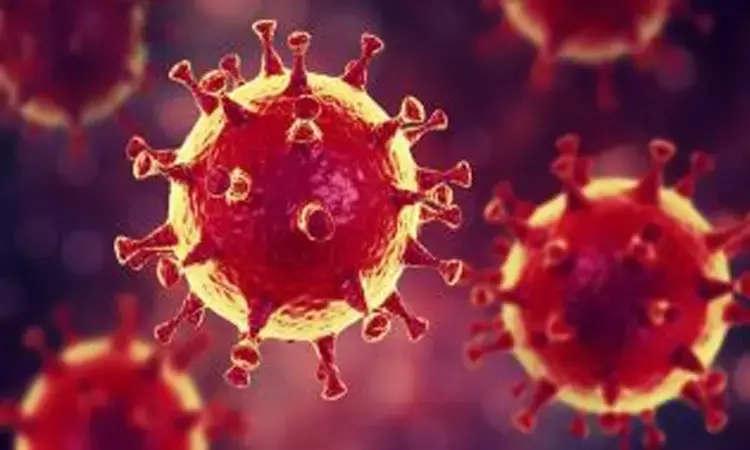- Home
- Medical news & Guidelines
- Anesthesiology
- Cardiology and CTVS
- Critical Care
- Dentistry
- Dermatology
- Diabetes and Endocrinology
- ENT
- Gastroenterology
- Medicine
- Nephrology
- Neurology
- Obstretics-Gynaecology
- Oncology
- Ophthalmology
- Orthopaedics
- Pediatrics-Neonatology
- Psychiatry
- Pulmonology
- Radiology
- Surgery
- Urology
- Laboratory Medicine
- Diet
- Nursing
- Paramedical
- Physiotherapy
- Health news
- Fact Check
- Bone Health Fact Check
- Brain Health Fact Check
- Cancer Related Fact Check
- Child Care Fact Check
- Dental and oral health fact check
- Diabetes and metabolic health fact check
- Diet and Nutrition Fact Check
- Eye and ENT Care Fact Check
- Fitness fact check
- Gut health fact check
- Heart health fact check
- Kidney health fact check
- Medical education fact check
- Men's health fact check
- Respiratory fact check
- Skin and hair care fact check
- Vaccine and Immunization fact check
- Women's health fact check
- AYUSH
- State News
- Andaman and Nicobar Islands
- Andhra Pradesh
- Arunachal Pradesh
- Assam
- Bihar
- Chandigarh
- Chattisgarh
- Dadra and Nagar Haveli
- Daman and Diu
- Delhi
- Goa
- Gujarat
- Haryana
- Himachal Pradesh
- Jammu & Kashmir
- Jharkhand
- Karnataka
- Kerala
- Ladakh
- Lakshadweep
- Madhya Pradesh
- Maharashtra
- Manipur
- Meghalaya
- Mizoram
- Nagaland
- Odisha
- Puducherry
- Punjab
- Rajasthan
- Sikkim
- Tamil Nadu
- Telangana
- Tripura
- Uttar Pradesh
- Uttrakhand
- West Bengal
- Medical Education
- Industry
Best practices for cancer care during COVID-19 pandemic

PLYMOUTH MEETING, PA — Experts from the Seattle Cancer Care Alliance (SCCA)—a Member Institution of the National Comprehensive Cancer Network® (NCCN®) have shared insights and advice on best practices for providing optimal cancer care during the novel coronavirus (COVID-19) pandemic.
The article stresses the importance of keeping channels of communication open between administrators and staff, patients, caregivers, and the general public. The authors recommend forming an Incident Command Structure (as illustrated below) to provide early coordination of institution-wide efforts and to rapidly respond to changing information. They highlight the need to remain flexible and ready for unexpected challenges.
Some of the anticipated challenges include:
- Staff shortages due to potential exposure and/or school closings
- Limitations of resources such as hospital beds, mechanical ventilation, and other equipment
- Impact on treatment from travel bans, including reduced access to international donors for allogeneic stem cell transplantation
Major recommendations for mitigating some of these concerns through proactive measures include:
- Providing patient information via handouts, signs, web-based communication, and a dedicated phone line for questions and triage
- Rescheduling "well" visits and elective surgeries, and deferring second opinion consultations (where care is already appropriately established)
- Increasing hours of general hospital operations to reduce the unnecessary use of emergency department resources
- Reinforcing a strict "stay at home when ill" policy and ensuring staff have access to testing
- Restricting travel and enabling work-from-home wherever possible
- Prioritizing the use of soap and water over hand gel
- Limiting the number of team members who enter patients' rooms
- Considering lower thresholds for blood transfusions
- Moving some procedures from inpatient to outpatient
- Adopting a no visitor policy with rare exceptions such as end-of-life circumstances
- Having upfront, proactive palliative and end-of-life conversations with cancer patients who may become infected with COVID-19
The article also addresses the importance of self-care within and beyond the medical community. The authors call for the prioritization of measures to protect health and frontline staff and assure a safe work environment in order to prevent provider burnout. Those measures include compensation policies, reassignments to administrative roles for immunocompromised staff, and the creation of a back-up labour pool.
"Responding quickly and confidently to the COVID-19 crisis is the health care challenge of our generation," said co-lead author F. Marc Stewart, MD, Medical Director, SCCA. "Our overarching goal is to keep our cancer patients and staff safe while continuing to provide compassionate, high-quality care under circumstances we've never had to face before. We are working around the clock to develop new guidelines and policies to address situations that we couldn't have imagined several weeks ago. When the pandemic ends, we will all be proud of what we did for our patients and each other in this critical moment for humanity."
"The COVID-19 pandemic is impacting every facet of our global and domestic societies and health care systems in unprecedented fashion," said Robert W. Carlson, MD, Chief Executive Officer, NCCN. "People with cancer appear to be at increased risk of COVID-19, and their outcomes are worse than individuals without cancer. The NCCN Member Institutions are rapidly gaining experience in preventing and managing COVID-19. As is the nature of the NCCN Member Institutions, they are sharing their experience in organizing and managing institutional and care systems responses and best practices in this rapidly evolving global effort."
For more details click on the link: https://jnccn.org/fileasset/jnccn1804-Ueda_20118_preprint.pdf
Hina Zahid Joined Medical Dialogue in 2017 with a passion to work as a Reporter. She coordinates with various national and international journals and association and covers all the stories related to Medical guidelines, Medical Journals, rare medical surgeries as well as all the updates in the medical field. Email: editorial@medicaldialogues.in. Contact no. 011-43720751
Dr Kamal Kant Kohli-MBBS, DTCD- a chest specialist with more than 30 years of practice and a flair for writing clinical articles, Dr Kamal Kant Kohli joined Medical Dialogues as a Chief Editor of Medical News. Besides writing articles, as an editor, he proofreads and verifies all the medical content published on Medical Dialogues including those coming from journals, studies,medical conferences,guidelines etc. Email: drkohli@medicaldialogues.in. Contact no. 011-43720751


